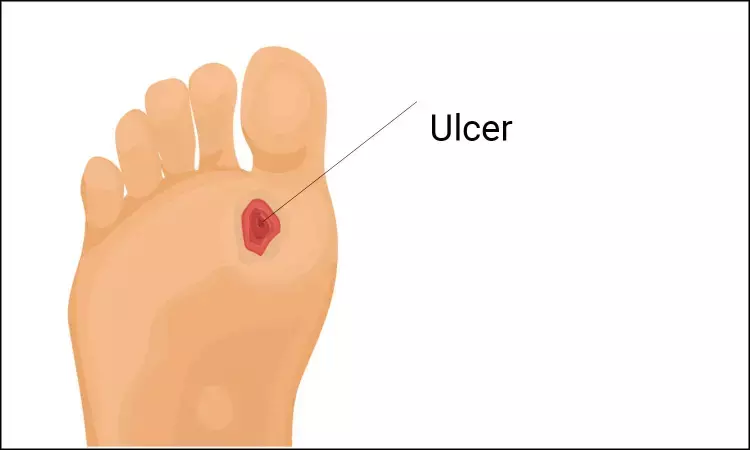- Home
- Medical news & Guidelines
- Anesthesiology
- Cardiology and CTVS
- Critical Care
- Dentistry
- Dermatology
- Diabetes and Endocrinology
- ENT
- Gastroenterology
- Medicine
- Nephrology
- Neurology
- Obstretics-Gynaecology
- Oncology
- Ophthalmology
- Orthopaedics
- Pediatrics-Neonatology
- Psychiatry
- Pulmonology
- Radiology
- Surgery
- Urology
- Laboratory Medicine
- Diet
- Nursing
- Paramedical
- Physiotherapy
- Health news
- Fact Check
- Bone Health Fact Check
- Brain Health Fact Check
- Cancer Related Fact Check
- Child Care Fact Check
- Dental and oral health fact check
- Diabetes and metabolic health fact check
- Diet and Nutrition Fact Check
- Eye and ENT Care Fact Check
- Fitness fact check
- Gut health fact check
- Heart health fact check
- Kidney health fact check
- Medical education fact check
- Men's health fact check
- Respiratory fact check
- Skin and hair care fact check
- Vaccine and Immunization fact check
- Women's health fact check
- AYUSH
- State News
- Andaman and Nicobar Islands
- Andhra Pradesh
- Arunachal Pradesh
- Assam
- Bihar
- Chandigarh
- Chattisgarh
- Dadra and Nagar Haveli
- Daman and Diu
- Delhi
- Goa
- Gujarat
- Haryana
- Himachal Pradesh
- Jammu & Kashmir
- Jharkhand
- Karnataka
- Kerala
- Ladakh
- Lakshadweep
- Madhya Pradesh
- Maharashtra
- Manipur
- Meghalaya
- Mizoram
- Nagaland
- Odisha
- Puducherry
- Punjab
- Rajasthan
- Sikkim
- Tamil Nadu
- Telangana
- Tripura
- Uttar Pradesh
- Uttrakhand
- West Bengal
- Medical Education
- Industry
Empirical Antibiotic usage has no effect on healing of diabetic foot infections: Study

Poland: Empiric antibiotic therapy use before targeted therapy and topical gentamycin use does not reduce healing time in patients with diabetic foot infection (DFI), finds a recent study. Further, the researchers found obese patients to have a longer healing time of DFI than nonobese patients.
The findings of the study are published in the Journal of Foot and Ankle Surgery.
Karolina Kruszewska, Department of Clinical Nursing, Medical University of Warsaw, Warsaw, Poland, and colleagues aimed to analyze bacterial flora in diabetic foot infection, empiric and targeted antibiotic therapy, and factors influencing wound healing duration.
For the purpose, the researchers undertook a review analysis of data in 118 cases of diabetic foot among 98 patients. Data on sociodemographic data, wounds information, used treatment, results of the microbiological examination, and empiric and targeted antibiotic therapy were collected.
In order to identify the empirical and targeted antibiotic compatibility, the patients were divided into subgroups: ETA+ (compatibility of empiric-targeted antibiotic), ETA- (non-compatibility of empiric-targeted antibiotic), NEA (no empiric antibiotic), and NTA (no targeted antibiotic).
The study group consisted of men, N=71 (72.4%) and women, N=27 (27.6%).
Key findings of the study include:
- Twenty patients (20.4%) were diagnosed as obese according to the Body Mass Index classification.Staphylococcus aureus and Enterococcus faecalis were identified in most cases [N=53 (24.4%), and N=41 (18.9%), respectively].
- Sixteen patients (13.6%) received gentamycin locally.
- Amoxicillin with clavulanic acid, clindamycin, and levofloxacin were the most frequently used antibiotics as empiric therapy; meanwhile, in targeted therapy, amoxicillin with clavulanic acid and levofloxacin were most frequently used.
- Empiric and targeted antibiotic therapies were compatible in 65 (55.1%) cases.
- The duration of healing did not differ between selected subgroups, and was longer in obese patients.
- Other variables did not influence the healing time.
"The use of empiric antibiotic therapy before targeted therapy and the topical use of gentamycin did not reduce the healing time of diabetic foot infection. The healing time of diabetic foot infection was longer in obese patients than in nonobese patients," wrote the authors.
The study titled, "A comparative analysis of antibiotic usage in diabetic foot infections against healing time," is published in the Journal of Foot and Ankle Surgery.
DOI: https://www.jfas.org/article/S1067-2516(21)00082-X/fulltext
Dr Kamal Kant Kohli-MBBS, DTCD- a chest specialist with more than 30 years of practice and a flair for writing clinical articles, Dr Kamal Kant Kohli joined Medical Dialogues as a Chief Editor of Medical News. Besides writing articles, as an editor, he proofreads and verifies all the medical content published on Medical Dialogues including those coming from journals, studies,medical conferences,guidelines etc. Email: drkohli@medicaldialogues.in. Contact no. 011-43720751


